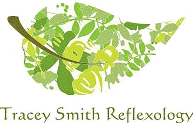Believe it or not, I was once a serious scientist, a molecular biologist no less; working in scientific research. But then one day I crossed to the dark side…
Some 27 years ago I was working at St Thomas’ hospital, and I decided that I wanted to do an evening class to meet new people and even possibly gain a new skill. I had intended to take part in wine tasting, but according to the helpful person at Morley College, wine tasting classes always filled up first and well in advance – so I would have to wait for a further 12 weeks to book. At this point, I was not to be put off doing a class, so I simply requested what else was available at the same time and day. ‘Reflexology’ came the answer, ‘then I shall do that!’ I said! Such was the level of prior thought applied to my decision that day, I wasn’t even completely sure what reflexology was, beyond my knowledge that it had something to do with the feet, but no matter, I paid my money and signed up.
I went away and read up a little on the course that I had signed up for and found that reflexology is a complementary therapy; not an alternative therapy, as it comes from a common health paradigm, and can be used alongside medical treatments; hence the term complementary. Alternative therapies originate from a different diagnostic paradigm, classical examples of these are Ayurveda and Traditional Chinese Medicine.
The theory of reflexology is that all the systems and areas of the body are reflected in the extremities – the feet most commonly but also in the hands, face, and ears. By applying touch, be this firm or gentle pressure, to the various areas of the foot, etc, the theory is that the body makes a decision to return to balance, to stop working too hard or not working hard enough, but to be balanced and therefore in harmony. Thus the level of tension reduces, relaxation ensues, sleep is aided, your mood may be improved, and best of all wellbeing is heightened. And who, in these days of trouble, couldn’t do with improved wellbeing? This is the cornerstone of all care packages these days, albeit in health, work, or within illness. Good well-being is what we all desire.
So, I went along to the class, not really knowing what to expect, and found that although we were complete novices learning and practicing on each other, the way we learnt to apply pressure to the feet was exceptionally pleasing. We were learning the process of reflexology little by little and week by week, however, I found very quickly that on a personal level that some of my health issues were simply improving. I had been getting migraines more and more frequently and to a greater extent as each year passed. What started as a horrid yet relatively simple headache had progressed to visual disturbances, numbness in my thumb (paraesthesia), and a minimum of three days in bed. In addition, my menstrual cycle was at best erratic, with a 5 or 6-week cycle and pain, bloating, and nausea in the latter weeks. Yet once I started this course – remember we were complete novices(!), everything started to settle down. I became a better person than I was before, less pain meant I was nicer, fewer hormone ups and downs, meant less anger and irritability. The change was subtle but to me obvious.
After the 12-week introductory course was complete, I wanted to know more! And I wanted to keep my health improving, so I signed up for a practitioner course with the Association of Reflexologists. This is a year of training, with lots and lots of hands-on experience. There are lots of very short training courses out there, but if you want to do a good course that will open doors, then www.aor.org.uk is the place to find out more.
I completed my course and then started to be a reflexologist. Even today, after 25 years of applying bespoke and individualised treatments to my clients I never cease to be amazed at the changes reflexology can initiate in people. Reflexology, through my hands, facilitates the inner rebalancing and yes, even prompting their own inner healing in people. Pain reduction, hormone rebalancing, mood improvement, babies where there had been problems, happiness where there had been none, reduction in stress, improvement in movement, changes in outlook, and most of all improved wellbeing!
As to me, well I have not had a single migraine since I started that course, and my menstrual cycle settled to a steady 28 days up to the menopause, and even that hasn’t been terrible.
Fate took me by the hand that day when wine tasting was full, and hopefully will never let go.
Tracey Smith BSc, FMAR.
